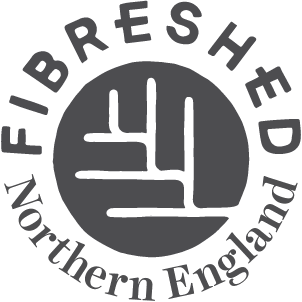
At the heart of our recent collaborative Northern England Fibreshed event with Pasture for Life, was the celebration of regenerative farming—a holistic approach that focuses on revitalising and enhancing the entire farm ecosystem. Regenerative farming is not just about producing high-quality fibres but is about deeply nurturing the land, promoting biodiversity, and improving soil health.
Pasture for Life gathered farmers from our region who are passionate and interested in farming in this way, for an event instigated by project manager, Rob Bunn with mentor (and NEF coordinator) Mark Palmer. They heard presentations from Fibreshed lead Justine Aldersey-Williams who spoke about the origins of the UK Fibreshed movement and her work helping reintroduce native textile crops during the Homegrown Homespun and Woman Grows Jeans projects, Zoe Fletcher who studied British Wool breeds for her PhD and has since established The Wool Library to support both farmers and brands who want to work with the fibre, and Edward Sexton of Glencroft, a local Yorkshire company offering fully traceable woollen knitwear through their Clapdale Wool Project.
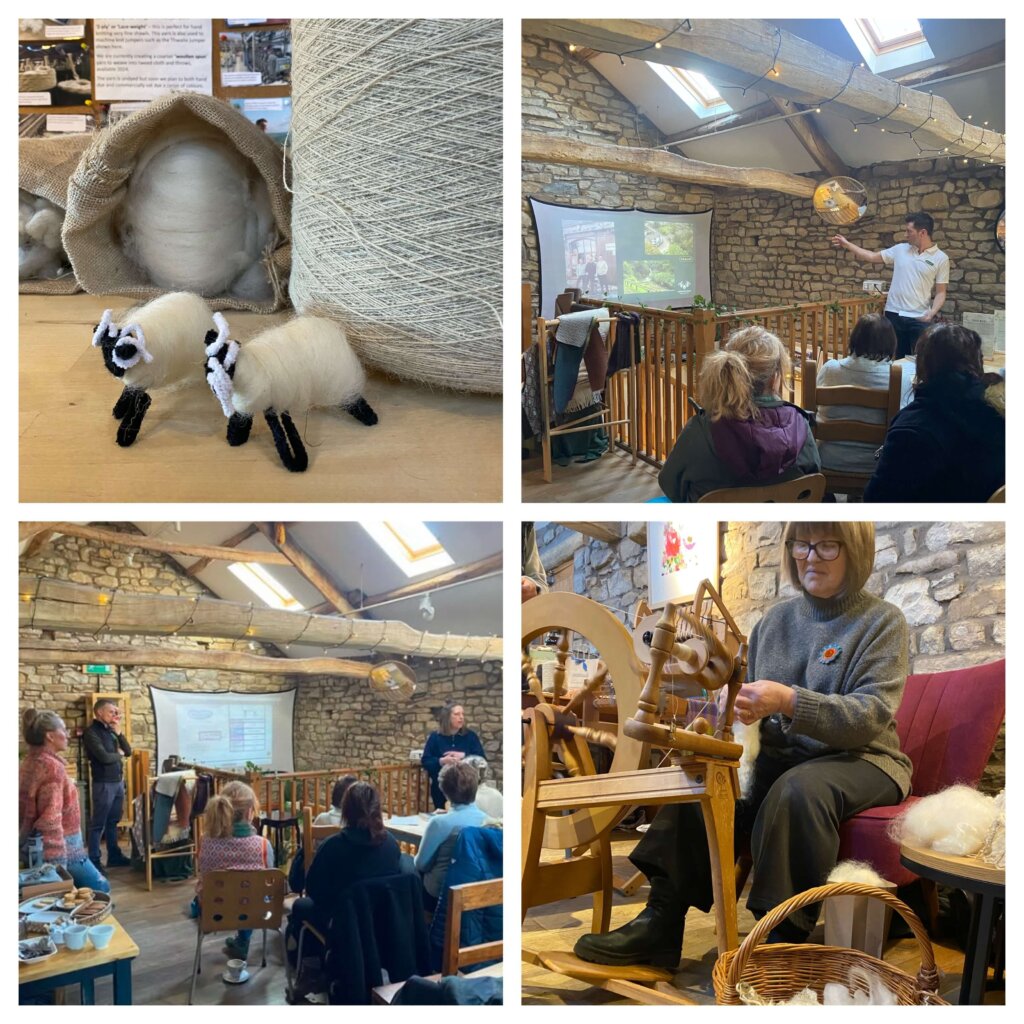
The event also hosted Kate Stalker from knitwear label and studio OUBAS in Cumbria and Ali Sharman and Carole Bowman, natural fibre spinners and weavers who were demonstrating and showcasing their regional textiles.
The event opened up conversations between textile practitioners and the farming community; serving as a platform to bridge the gap between those who cultivate the raw materials and those who transform them into beautiful, sustainable products.
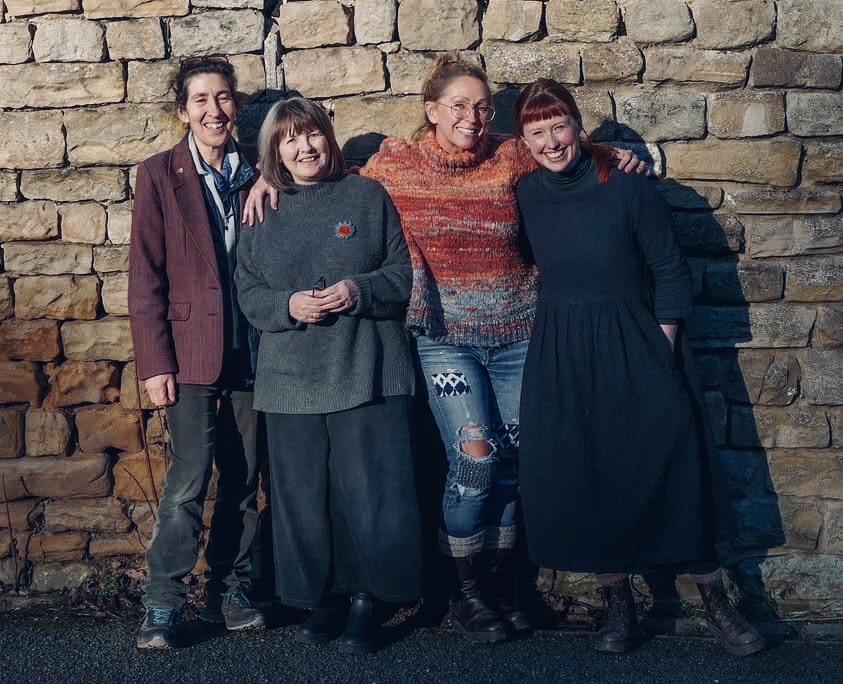
Key Conversations Included:
- Understanding Fibre Quality: Farmers and textile experts discussed the nuances of fibre quality, delving into how farming practices directly impact the texture, strength, and durability of wool. This emphasised the importance of collaboration in achieving the highest standards of finished goods.
- Sustainable Practices: Both communities shared insights on sustainable practices, exploring how regenerative farming and eco-friendly textile production can work hand-in-hand to reduce environmental impact and promote sustainability across localised supply chains.
- Innovation and Craftsmanship: The event sparked conversations about innovation in textile design and craftsmanship, highlighting how traditional techniques can be enhanced with modern technology to produce exquisite, sustainable items.
- Building Relationships: By fostering direct connections, the event encouraged ongoing partnerships between farmers and textile practitioners. These relationships are crucial for ensuring a consistent supply of high-quality fibres and for supporting local economies.
Through these conversations, the event not only celebrated the value of natural fibres but also reinforced the collective commitment to a sustainable future in the industry.
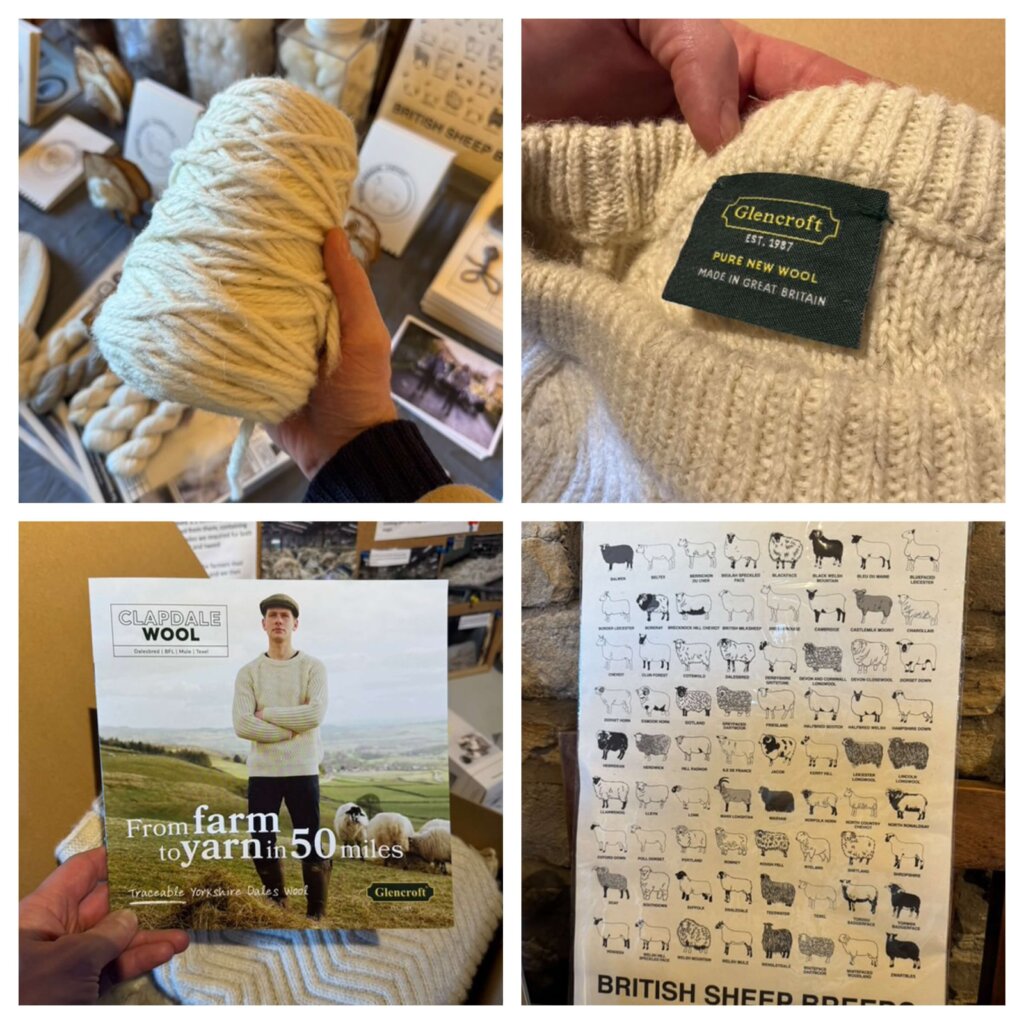
Pasture for Life Principles:
‘Grazing animals on 100% pasture brings positive impacts for biodiversity and carbon, human health and wellbeing, and animal health and welfare. Pasture for Life works on the ground, every day, to restore ecosystems, implement positive change in our food and farming systems, and demonstrate the benefits of 100% pasture fed’.
- Soil Health: By minimising soil disturbance and promoting organic matter, regenerative practices enhance soil fertility and water retention, leading to healthier pastures and more resilient ecosystems.
- Biodiversity: Encouraging a diverse range of plant species supports wildlife habitats and creates a balanced ecosystem that can thrive naturally without excessive intervention.
- Carbon Sequestration: Through practices like rotational grazing, regenerative farming helps capture atmospheric carbon, playing a vital role in combating climate change.
- Animal Welfare: Ensuring that livestock are raised in environments that mimic their natural habitats promotes healthier, happier animals, which in turn produce superior quality wool.
Holistic Nature of Pasture for Life Grazing:
Pasture for Life embraces a holistic grazing approach that aligns perfectly with regenerative principles. This method focuses on:
- Rotational Grazing: Livestock are moved regularly to fresh pastures, allowing the land to recover and regenerate, promoting robust plant growth and soil health.
- Natural Diets: Animals graze on diverse, nutrient-rich pastures, which enhances their well-being and results in wool of exceptional quality.
- Sustainable Land Management: By integrating livestock into the landscape in a way that supports natural cycles, Pasture for Life ensures the sustainability and vitality of the land for future generations.
Through these practices, we are not only producing exquisite textiles, but also contributing to a positive, symbiotic future. Fibreshed’s commitment to using the finest natural fibres aligns with these values, ensuring that every piece we craft is a testament to the beauty of nature and the importance of responsible stewardship.
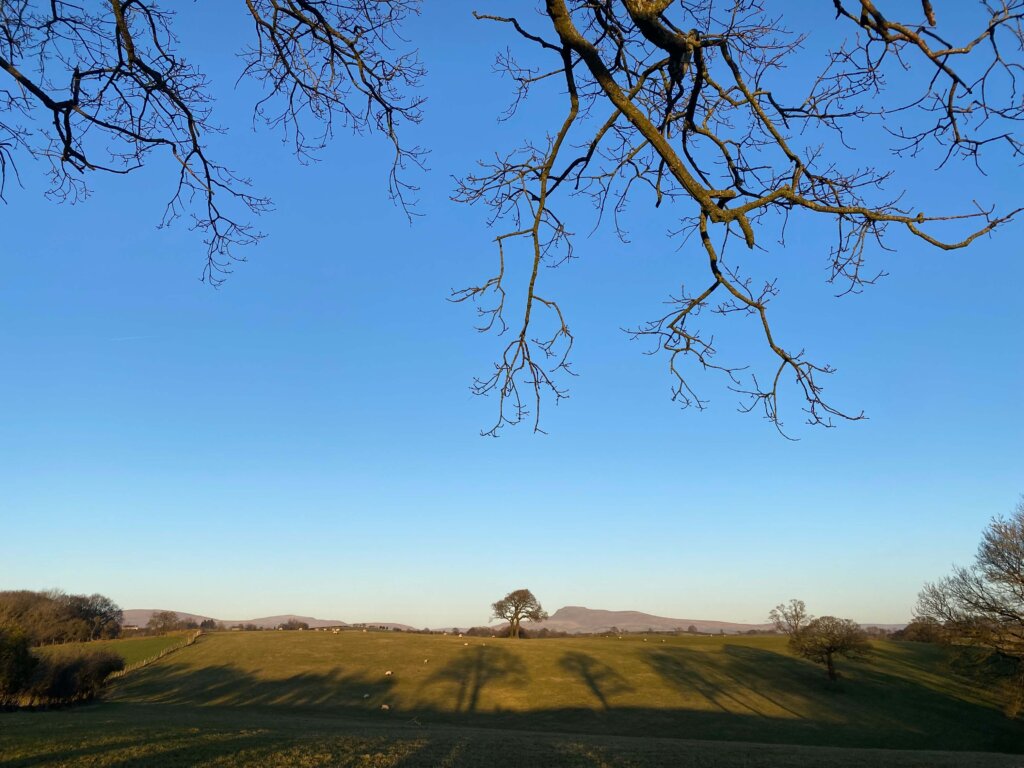
Written by Kate Stalker of Oubas Knitwear
